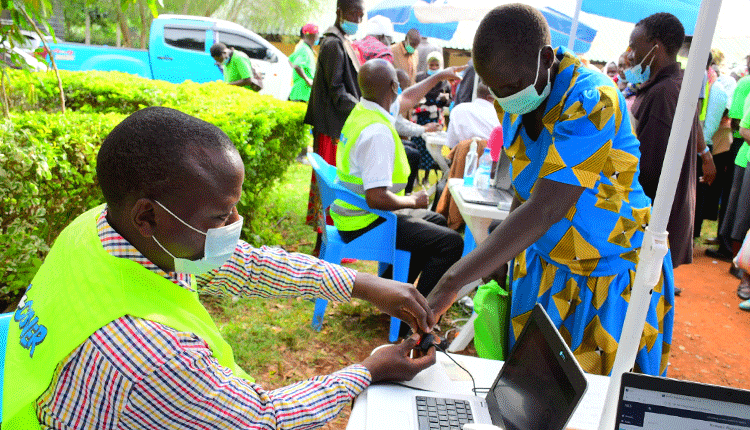Why coronavirus poses a greater threat to men than to women

Covid-19 not only seems to discriminate by age, but sex as well, or so it seems. The likelihood of death may come down to biology, lifestyle and behaviour, our writer DANIEL OFISI finds out.
As the global death toll from the novel coronavirus mounts, evidence is growing that more men than women are becoming seriously ill, and dying from the virus.
The World Health Organisation (WHO) has reported that 69 per cent of all coronavirus deaths are of males.
In Spain, Italy, France, Germany and the US for example, where the highest number of cases and deaths have been reported, twice as many men have been dying from the virus as women.
Updates from the Ministry of Health in Kenya demonstrates that since March 12, when the first case of the virus disease was reported in Kenya until April 13, out of the 208 cases, 120 were males and 88 females. As of April 18, 12 were male and four female.
Women are better fighters
Most viruses don’t discriminate between genders as all are at risk of getting infected, but scientists and medical professionals are scrambling to understand why this one clear trend is emerging in almost every country.
According to Sabra Klein, a scientist at the Johns Hopkins Bloomberg School of Public Health, the pattern — men fairing worse than women — is consistent with other viral respiratory infections. “Women fight them off better,” she said.
This gender difference was also noted by officials during the Severe Acute Respiratory Syndrome (SARS) in 2002 in China and Middle East Respiratory Syndrome (MERS) outbreaks.
Studies of HIV and hepatitis C show that women can have stronger immune reaction to viruses although it’s still soon to know how this might play out in the context of Covid-19.
Men are constantly reminded to take health care matters seriously because having certain medical conditions such as asthma or heart disease might make one more vulnerable.
Gallup, an American analytics and advisory company in Washington conducted a poll between March 2, and 13 and found that women were more concerned about the virus than men were by a 62 to 58 per cent margin.
Could it be a higher likelihood of delaying medical care, the genes and sex hormones in men’s bodies or higher rates of smoking among men that are setting men on a riskier course if they encounter the virus?
Experts say men tend to expose themselves more to larger crowds and social exchanges, including things like handshaking, which possibly put them at risk.
The adventurous nature of men and behaviours that impact lung health, such as smoking, also play a role in the disease’s deadly impact on men.
Culturally men are also the breadwinners and being exposed to more interactions.
“Simply, men are adventurous and structurally, the society expects that of them and since the virus has to do with much with going out, they are more susceptible,” says Dr Otiato Wafula, lecturer of Sociology at Kenyatta University.
Chromosomes factor
It is no wonder women on social media have been ranting, expressing their frustrations about their husbands ignoring the government’s stay-at-home order, and keep going out to do business, even though some of them do not provide essential services.
Various studies on differences in male and female immune responses offer findings like testosterone and oestrogen seem to be important in modulating the immune response, the fact that women have two copies of the X chromosome as men have only one gives them stronger immune system and response to infections better than men, an indication on genetics playing a big role.
Dr Charles Ashira, a Medical doctor at Kenyatta University Health Unit says high blood pressure and liver disease are more prevalent in men and these all contribute to negative outcomes with Covid-19.
“Some of the underlying reasons why the virus may be more deadly for men than women may include the fact that heart disease is more common in elderly men than in elderly women,” he says.
Complacency toll
Case in point, a 66-year-old Kenyan man was the first person to die of the virus in the country, as it is the case in almost every country in the world.
WHO estimates that air pollution kills more than four million people annually by contributing to illnesses such as asthma, bronchitis, emphysema, lung and heart diseases, and respiratory allergies.
Based on that, pollution could also be playing a role in elevated Covid-19 mortality rates among men.
Our cultural norms stipulate that men are the ones likely to be engaged in outdoor work, exposing them to extreme climate and pollution and this could directly impact their response to an infection like this.
“Men are less likely to admit they are sick or even to seek out testing when they feel sick.
This puts them at greater risk since they will be seen by a doctor when the disease has long progressed,” says Dr Ashira.
He says this may help explain why women tend to live longer. He advises men as well as the general public not to let complacency take a toll on their health.















